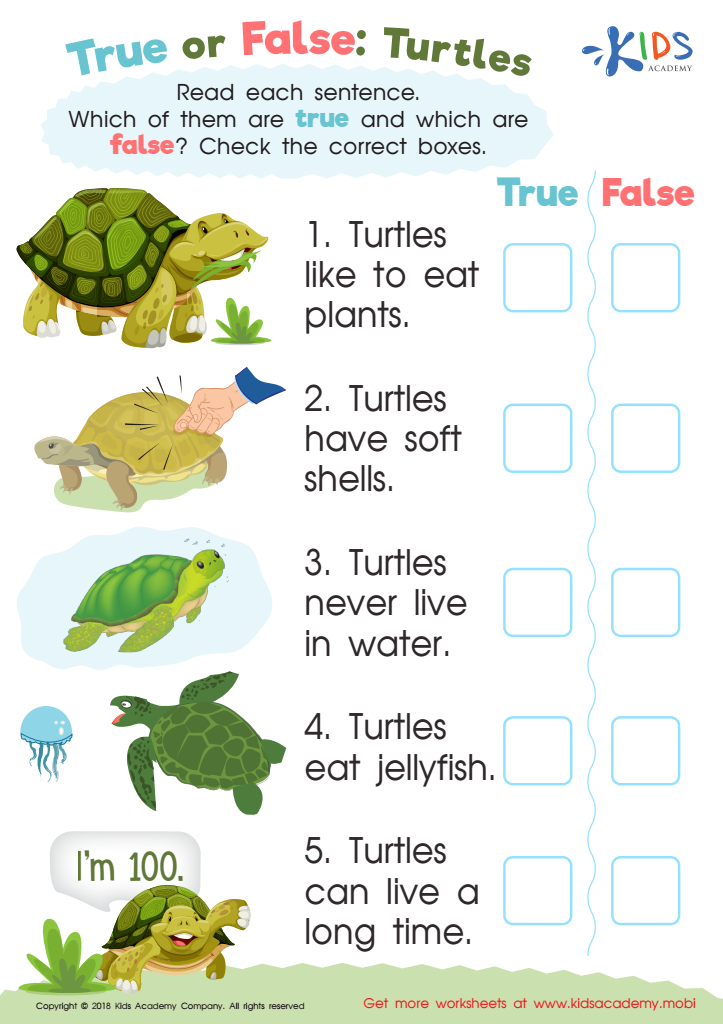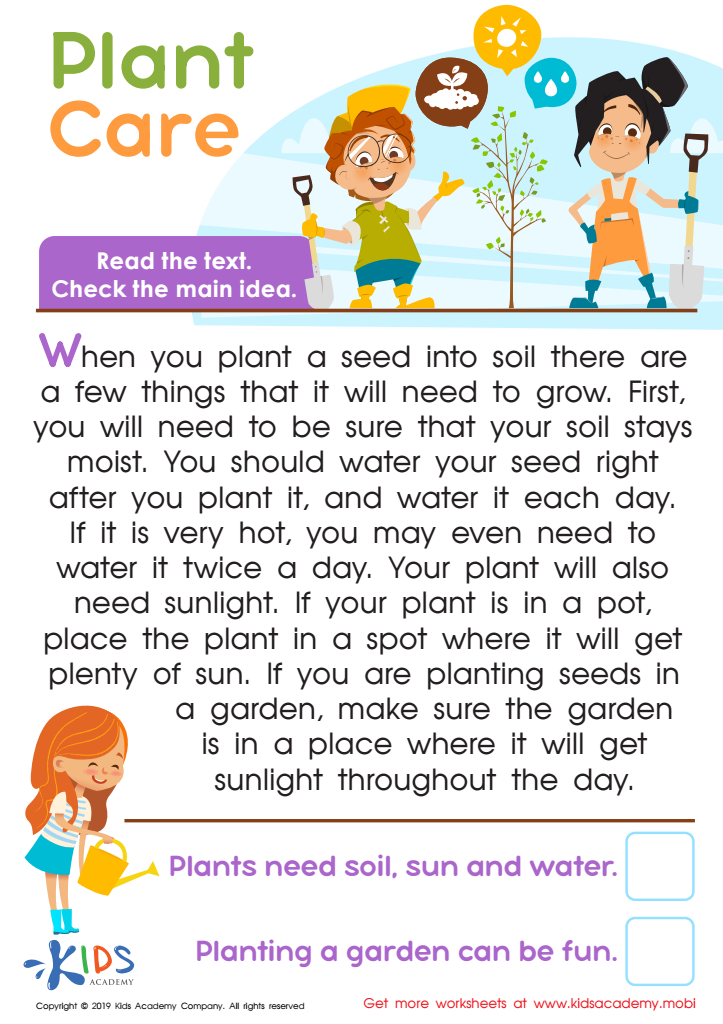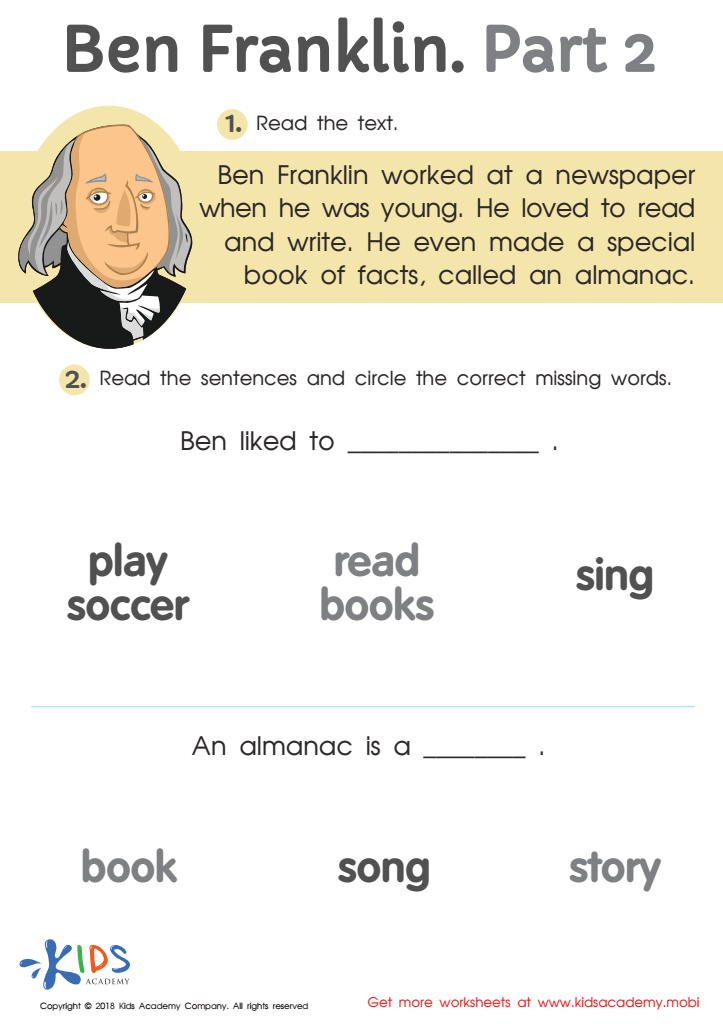Comprehension skills Reading Non-Fiction Worksheets for Ages 6-9
4 filtered results
-
From - To
Enhance your child's reading journey with our Comprehension Skills Reading Non-Fiction Worksheets designed specifically for ages 6-9. These engaging and age-appropriate worksheets help young learners develop essential comprehension skills while exploring a variety of fascinating non-fiction topics. Each worksheet encourages critical thinking and promotes understanding through interactive exercises and thought-provoking questions. With our curriculum-aligned resources, children will improve their ability to analyze information, summarize key points, and make connections—paving the way for future academic success. Dive into the exciting world of non-fiction and watch your child's confidence and comprehension soar as they enjoy reading and learning simultaneously!


True or False: Turtles Worksheet


Benjamin Franklin Worksheet


Plant Care Worksheet


Ben Franklin Part 2 Worksheet
Comprehension skills in reading non-fiction are crucial for children aged 6-9 as they lay the foundation for lifelong learning. During these formative years, children develop their ability to understand and interpret information presented in various formats. Non-fiction texts expose young readers to factual content, such as science, history, and social studies, fostering curiosity and encouraging critical thinking.
Parents and teachers should prioritize comprehension skills in non-fiction reading for several reasons. First, it aids in building vocabulary and knowledge, equipping children with the language and tools necessary to articulate their thoughts. Moreover, comprehension enhances analytical skills – children learn to differentiate between main ideas and supporting details, develop summaries, and ask questions about the material, all of which are vital for academic success.
Furthermore, strong comprehension abilities encourage a love of reading and promote lifelong educational engagement. As children learn to process information, they become more confident learners, able to navigate complex concepts as they grow. Instilling a solid comprehension foundation in non-fiction reading also empowers children to become informed citizens, equipped to understand the world around them. Overall, fostering these skills at an early age is essential for future academic and personal growth.
 Assign to My Students
Assign to My Students
















